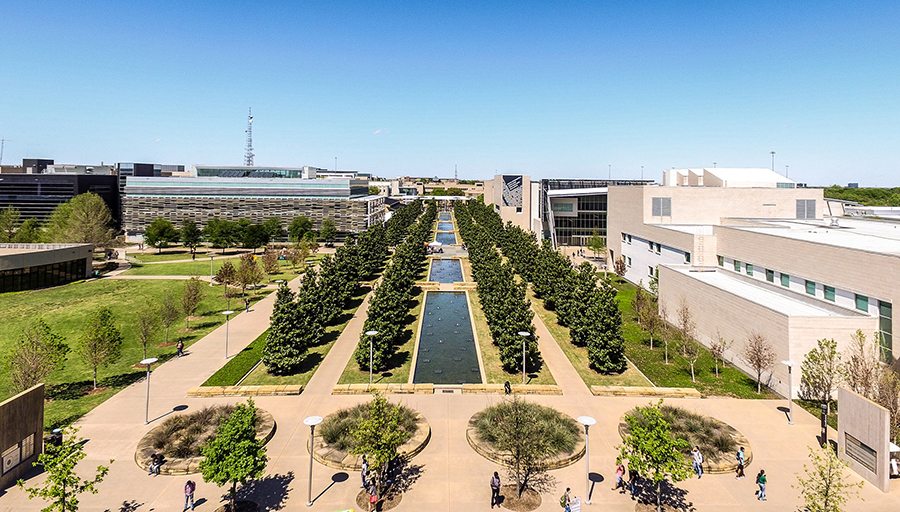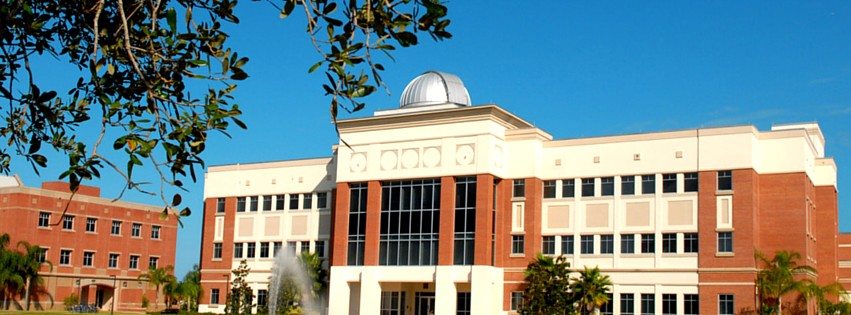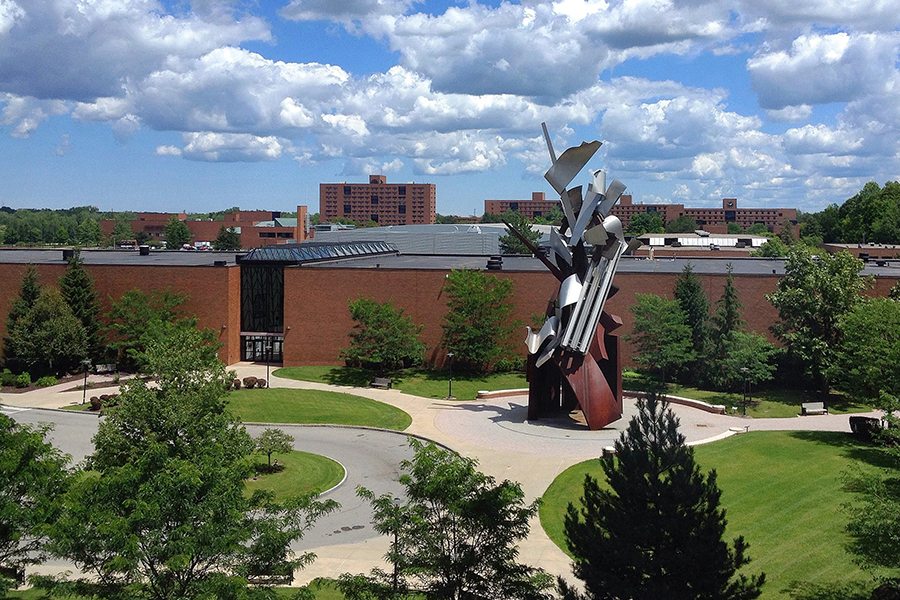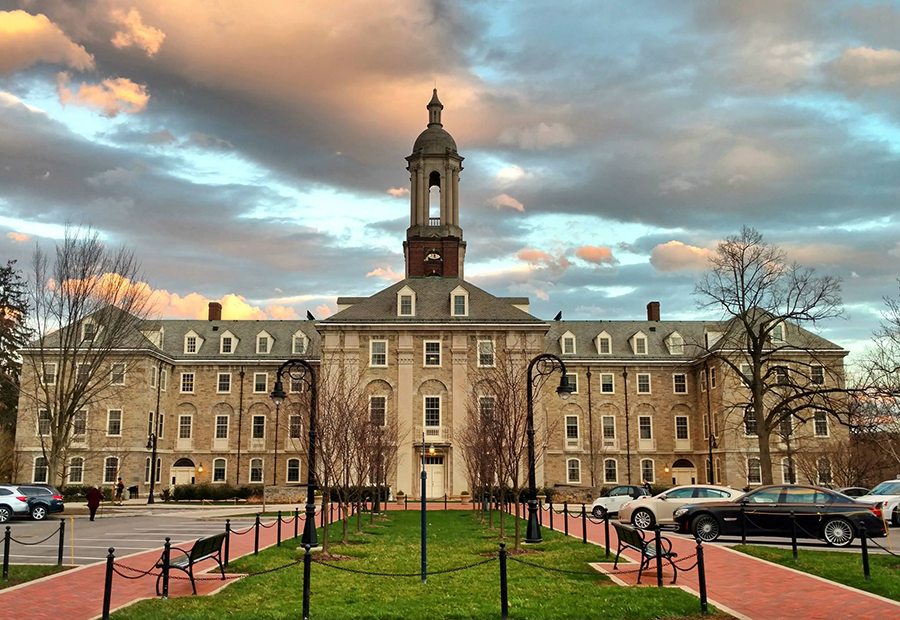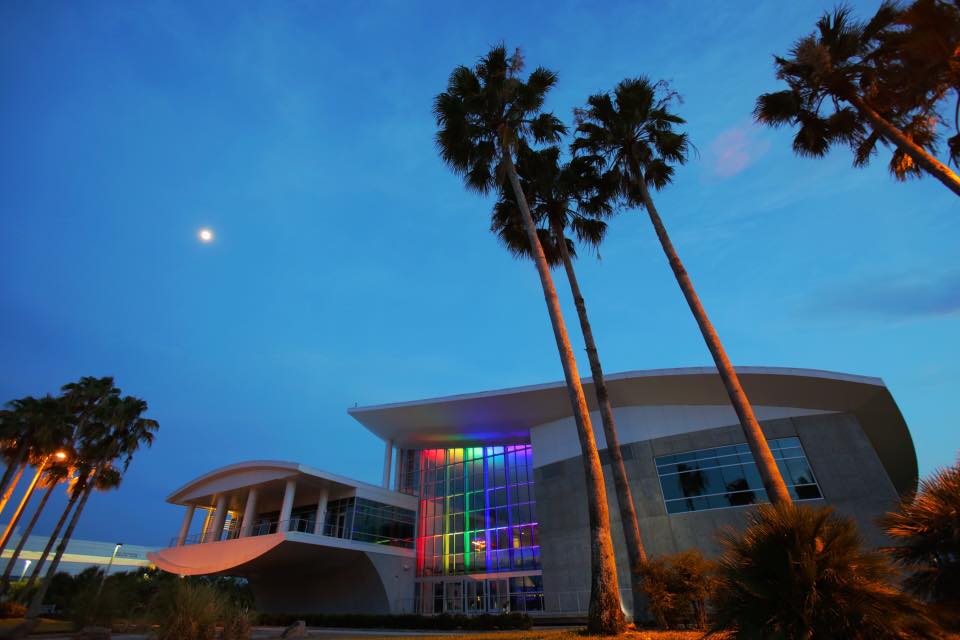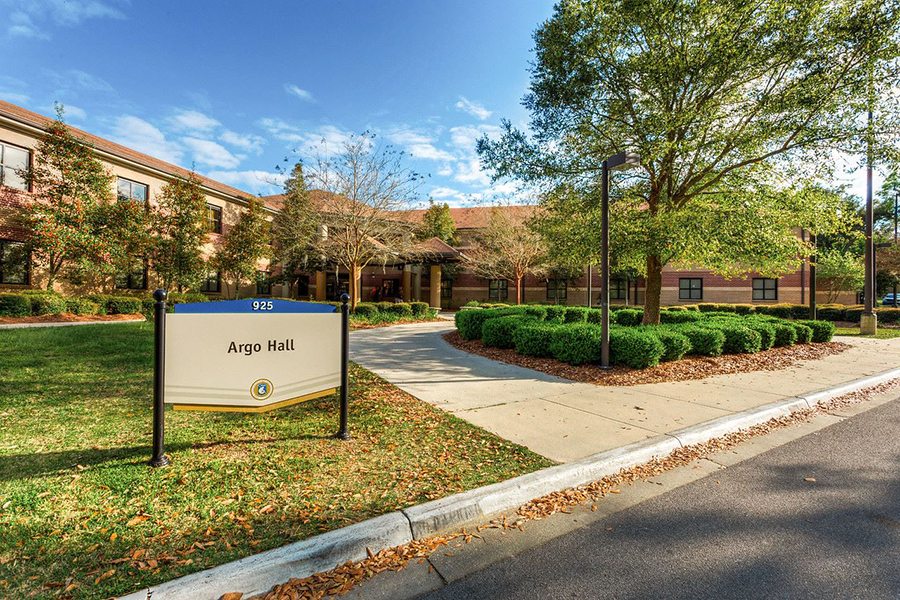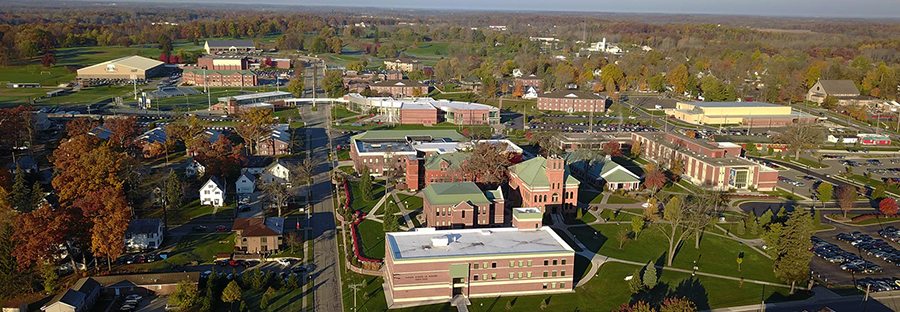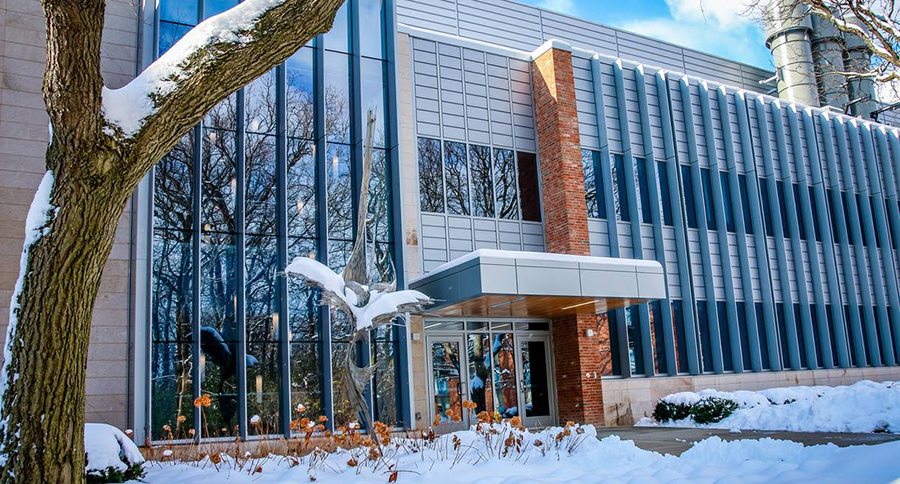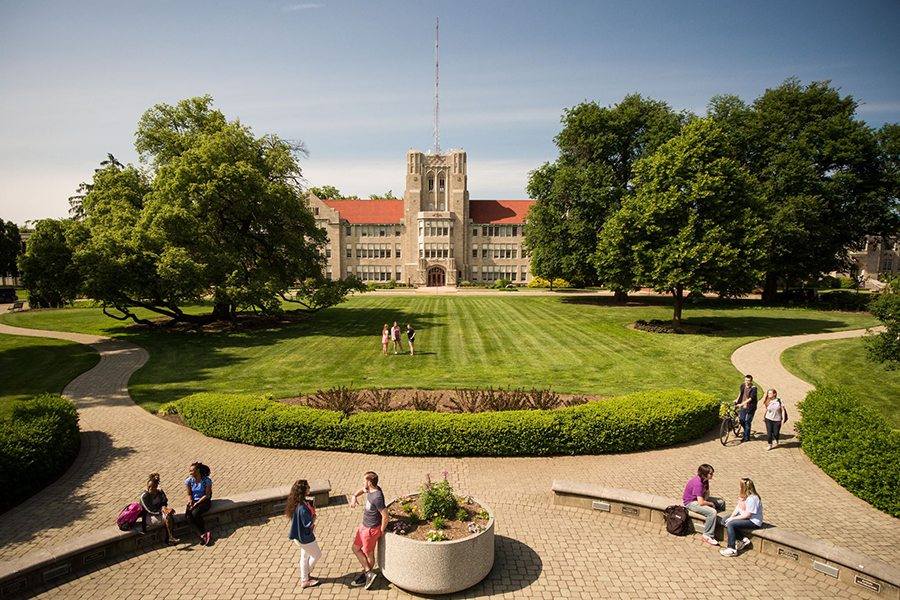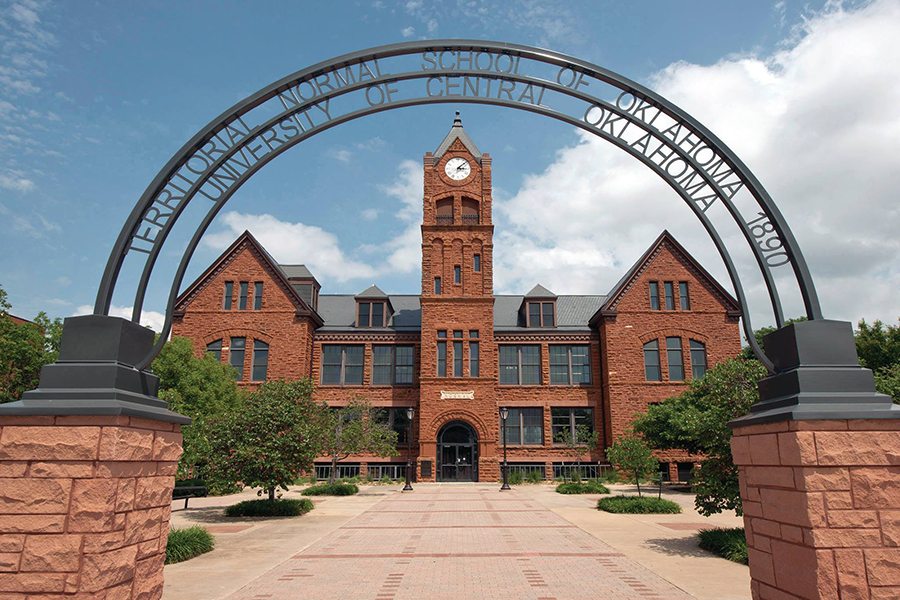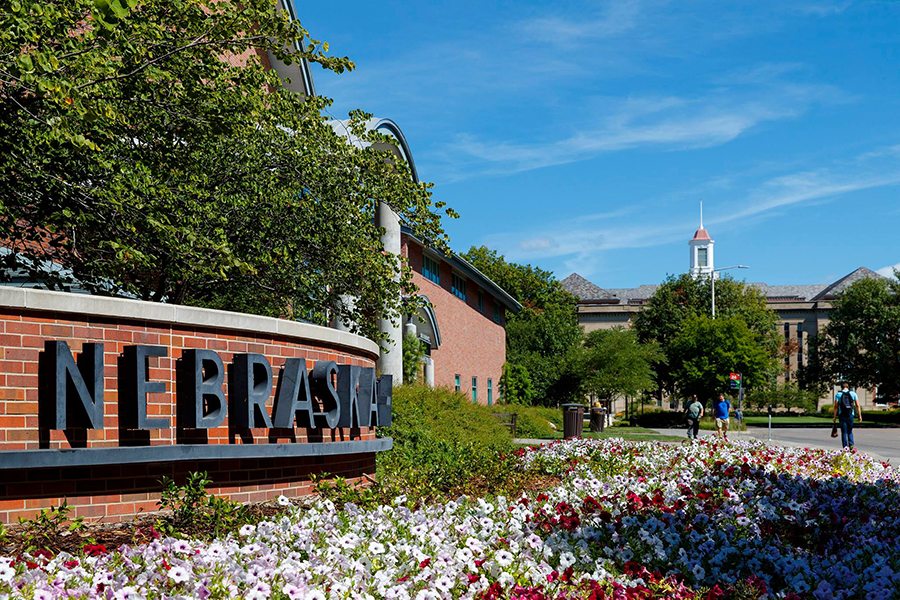SPECIALIZATIONS
Do you excel in math, computing, or science, or have an aptitude for what makes a computer tick? Consider a career in software engineering.
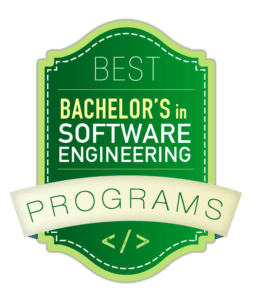 Software engineering is a branch of computer science that deals with the design and maintenance of complex computer systems. It requires an advanced skillset in mathematics and computing technology, and the ability to solve problems while working in teams.
Software engineering is a branch of computer science that deals with the design and maintenance of complex computer systems. It requires an advanced skillset in mathematics and computing technology, and the ability to solve problems while working in teams.
The U.S. Bureau of Labor Statistics indicates that jobs in software engineering are expected to grow 32 percent in the next decade, which is much faster than average for all occupations. This is largely because expanding Internet technologies have driven the need for new engineers who can develop, assess, and modify software and Internet applications.
Software engineers are an integral component of many industries, including medicine, manufacturing, science, and aerospace. In short, software engineers give computers the ability to undertake complex tasks more efficiently.
What kind of software engineering degree should you get?
Because software engineering is such an in-demand field, many universities offer at least basic degrees in the major. However, the best software engineering degrees will be ones that are backed by high rankings, experienced faculty, and affordable pathways to completion. Undergraduate degrees may be available online or on-campus. We talk more about your options for distance learning in our ranking of the Best Online Software Engineering Degrees.
It’s also important to pay attention to how customizable the degree path may be.
A more customizable degree will help young software engineers take a variety of classes to determine his or her area of specialization. In addition, a good software engineering degree will allow interested students to continue on to accredited master’s programs either at the same institution or elsewhere.
How much money do people make with a software engineering degree?
Software engineers enjoy a wide range of employment options, from data management to factory control to robotics. Therefore, average starting pay varies, depending on the industry, but most software engineers enjoy a very high starting salary. The national average across industries is $72,028. Engineers who work in safety-critical applications, such as aviation or national defense, may earn even more.
What can you do with a degree in software engineering?
Software engineers work in a wide variety of careers, from computer systems analysts to video game designers. They deal with programs including operating systems, computer games, business applications, and network control systems. They might work as software developers for embedded, web, or mobile systems, or become project managers or sales engineers.
Software engineers work in situations where reliability is demanded, such as controlling robots in surgery or keeping an airliner in the air. As a result, jobs in software engineering tend to be highly rewarding and high-paying.
What are the requirements for a degree in software engineering?
Applicants to software engineering undergraduate programs must have very strong high school preparation. They should take high school mathematics courses such as algebra, geometry, trigonometry, calculus, physics, and chemistry. Many undergraduate programs also require Advanced Placement courses in computer science or advanced technology. Applicants should also have strong communication and problem-solving skills, as they will be expected to work in teams.
Once enrolled in a software engineering program, students will take computer science courses with an emphasis on design, analysis, and measurement. Students will obtain a strong foundation in engineering related to software development.
What are the best software engineering degrees?
The best software engineering degrees will be ones that prepare students for the most in-demand careers.
Because software engineers are needed in all aspects of technology, from large Internet companies to automotive corporations, software engineers need the training and diversity of programs necessary to excel in a range of fields. Therefore, a program that emphasizes project-based learning, internship or cooperative opportunities, and team-based activities will be the best possible choice for an undergraduate degree.
1. California Polytechnic State University
Overview
The College of Engineering at California Polytechnic State University is an internationally recognized undergraduate engineering department. The college operates by a “learn-by-doing” philosophy, and, as a result, graduates students who are Day One-ready professionals. Students graduate as innovative, collaborative engineers after working in state-of-the-art facilities and laboratories.
Program Features
California Polytechnic is considered one of the best schools for undergraduate software engineering students because it is committed to student success. This commitment is demonstrated through comprehensive academic advising and support programs such as the Multicultural Engineering Program, which is designed to recruit and retain a diverse population of students. Required classes include:
- Professional Responsibilities
- Individual Software Design and Development
- Software Engineering
- Discrete Structures
- Software Deployment
- Programming Languages
- User-Centered Interface Design and Development
Notables
California Polytechnic features laboratories that are at the core of the engineering department’s project-centered focus. Facilities include the Aircraft Design Lab, the Rotor Dynamics Laboratory, the Advanced Technology Laboratories, and the Bonderson Projects Center. The Bonderson Center, for example, offers over 100,000 square feet in which students can work collaboratively on projects related to aerospace, mechanical, civil, environmental, industrial, and manufacturing engineering projects.
2. Milwaukee School of Engineering
Overview
Students will unite theory with practice in classroom and laboratory activities. The software development laboratory provides students with experience in various projects such as those including software engineering tools and techniques. Students may also intern in an industry setting, or work in teams to complete a major project. Elective courses are also available that allow students to pursue research in topics such as computer game development, graphics, or image processing.
Program Features
While many students attend the university simply for its focus on laboratory and industry experiences, it also hosts expert faculty within a small college environment. The university also has extremely high placement rates for graduates. Students will take classes such as:
- Combinational Systems
- Technical Composition
- Calculus for Engineers
- Software Development
- Probability and Statistics
- Computer Organization
- Linear Algebra
Notables
The Department of Electrical Engineering and Computer Science at Milwaukee is one of the oldest and largest departments at the university. It operates fourteen different engineering laboratories that allow students to gain experience in biomedical, computer, electrical and software, and electrical engineering technologies. Certificate programs, graduate degrees, and special company programs are offered in addition to the undergraduate degree.
3. University of California, Irvine
Overview
The University of California, Irvine offers eighty undergraduate degrees, many of which are recognized nationally for their high level of student engagement and research activity. The university is ranked eighth out of the three hundred Best Value Colleges, according to Forbes. The campus has also been recognized multiple times for its innovation and efforts towards sustainability.
Program Features
The program is built around a key set of core courses that introduce students to the fundamentals of software engineering, as well as important computer science concepts. Once these courses are completed, students may specialize by exploring over two dozen electives. Sample courses include:
- Programming in C/C++ as a Second Language
- Data Structure Implementation and Analysis
- Introductory Computer Organization
- Single-Variable Calculus
- Boolean Algebra and Logic
- Discrete Mathematics for Computer Science
- Computational Linear Algebra
- Introduction to Probability and Statistics for Computer Science
Notables
Students work with various programming languages and learn how to apply their skills to different domains and teams. Capstone courses require students to develop real systems for real clients outside of the university. The program allows students to work in the technologically diverse, vibrant Orange County, just moments away from Silicon Valley. Students are taught by faculty members who have worked and demonstrated an outstanding track record in the field of software engineering.
4. San Jose State University
Overview
San Jose State University’s Bachelor of Science in Software Engineering prepares students to become qualified engineers for leading companies in Silicon Valley. Students learn how to work with teams and with emergent technologies and solutions.
Program Features
Students will take a self-designed mixture of theoretical and hands-on courses. Few prerequisites are required before students begin taking interactive coursework in software engineering. Recommended courses include:
- Discrete Mathematics
- Differential Equations and Linear Algebra
- Engineering Probability and Statistics
- Computer Organization and Architecture
- Software Engineering Process Management
- Global and Social Issues in Engineering
- Data Structures and Algorithms
Notables
San Jose is responsible for training many of the engineers, software designers, and business people who keep Silicon Valley up and running. In fact, local technology firms employ more graduates from the School of Engineering at San Jose State than from any other university. The university ranks third nationally among public engineering programs, and is recognized as one of the fifty best engineering schools in the world according to Business Insider.
5. Stevens Institute of Technology
Overview
As the first college in the United States to dedicate itself solely to mechanical engineering, Stevens Institute of Technology has great experience offering superior engineering programs to top-notch students. The undergraduate degree in Software Engineering at Stevens Institute of Technology provides students with a depth of experience in software engineering as well as systems engineering.
Program Features
Students have the opportunity to complete co-ops and internships at companies such as Rockwell Collins, Citigroup, and Lockheed Martin. Students must complete at least 141 credits of classwork. Required classes include:
- Introduction to Entrepreneurial Thinking
- Differential Equations
- Electricity and Magnetism
- Thermodynamics
- Computational Data Structures and Algorithms
- Probability and Statistics for Engineers
- Digital System Design
- Introduction to Image Processing and Coding
Notables
Stevens provides an education to its students that allows them to receive successful, high-paying jobs. It is ranked seventh as a leading university granting STEM degrees, and sixth nationally for career placement, according to both U.S. News & World Report and The Princeton Review. Stevens offers significant scholarships and financial aid to its students, making it an affordable option that provides extensive opportunity for future return on investment.
6. Michigan Technological University
Overview
Michigan Technological University is a leading public research university with over one hundred and thirty degree programs in fields such as engineering, technology, economics, and computing. The Department of Computer Science at Michigan Technological University allows students to focus on both the practical and technical aspects of software, including cost-effectiveness, usability, reliability, requirements, and testing.
Program Features
Upon completing this program, students will be prepared to identify ethical and technical issues related to the development of computer software and to design programs that meet and address those issues. Students will take classes such as:
- Explorations in Computing
- Assembly Language Programming
- Introduction to Programming in C/C++
- Programming at the Hardware Software Interface
- Discrete Structures
- Ethical and Social Aspects of Computing
- Formal Models of Computation
Notables
Michigan Tech has an extraordinary reputation for its commitment to hands-on learning. The 600-acre campus is located in Upper Michigan, giving students opportunities for significant off- and on-campus experiential learning. Because Michigan Tech students gain experience in all realms of software engineering, they graduate with higher earning potential than graduates from other schools, according to national average salary reports.
7. Iowa State University
Overview
Iowa State’s Software Engineering bachelor’s degree was developed in 2007 as an interdisciplinary effort between the College of Engineering and the College of Liberal Arts and Sciences. The program allows students to interact with a highly diverse faculty and student body to gain expertise in a realm of fields, including science, engineering, and math. Upon graduation from this program, students are prepared for the most in-demand professions.
Program Features
The Software Engineering program is one of the fastest growing majors at the university. It is ranked sixth in the nation by College Choice for its academic reputation, student services, affordability, and career outcomes. Students will take classes such as:
- Programming Languages
- Object-Oriented Analysis and Design
- Software Requirements Engineering
- Formal Methods in Software Engineering
- Software Analysis & Verification for Safety and Security
- Algorithms for Large Data Sets: Theory & Practice
- Computer Game and Media Programming
- Database System Concepts & Internals
Notables
Iowa State provides extensive resources to its students, hosting some of the largest career fairs in the nation. Students will engage in internships, co-ops, and skill-building workshops to help them gain access to some of the most prestigious employers in the nation.
8. Drexel University
Overview
The Bachelor of Science in Software Engineering at Drexel teaches students to design and construct reliable, high-quality products, solve problems, and write code. The curriculum incorporates real-world challenges and applies technological solutions to the most demanding software problems.
Program Features
Students may choose to enhance their degrees through a variety of minors, including Computer Science, Data Science, Information Systems and Security Technology, or Human-Centered Computing. The university also features a unique accelerated program, which allows students to graduate with both a bachelor’s and master’s degree in five years. Students will take classes such as:
- Computing and Informatics Design
- Career Management and Professional Development
- Computer Programming
- Advanced Programming Tools and Techniques
- Mathematical Foundations of Computer Science
- Software Specification and Design
Notables
Drexel features a unique cooperative education program that’s nearly a hundred years old. This program allows students to test drive careers and gain important connections before graduation. In this process, they will choose one of nearly two thousand employers to participate in a long-term project. This project can last for the duration of the student’s academic studies, or be shortened to allow for exploration of multiple fields.
9. The University of Texas at Dallas
Overview
The University of Texas at Dallas is strategically located in the Telecom Corridor, home to the second-largest high-tech economy in the country. The university has responded to this demand by developing a strong interdisciplinary approach to research. The software engineering program at the University of Texas at Dallas is part of the university’s prestigious Computer Science department, which showcases an exceptional, internally-renowned faculty, and a 150,000 square foot building with cutting-edge laboratories.
Program Features
The university employs nearly 160 tenured or tenure-track faculty, and receives nearly $51 million in research funding each year. Students will engage in a program based on mathematical foundations and a computer science core. Classes might include:
- Professional and Technical Communication
- Differential Calculus
- Electromagnetism and Waves
- Social Issues and Ethics in Computer Science and Engineering
- Discrete Mathematics for Computing
- Electromagnetism and Waves
- Professional Responsibility in Computer Science and Software Engineering
- Probability and Statistics in Computer Science and Software Engineering
Notables
The university operates one of the largest internship and cooperative education programs in the country, with over a thousand undergraduate and graduate students placed in high-tech companies near Dallas each year. These companies include Texas Instruments, Intel, IBM, and Raytheon, among dozens of others. The school also features a money-saving fast-track program that allows students to complete a master’s degree with fifteen fewer required credit hours than through a comparable pathway.
10. Miami University
Overview
Miami University’s software engineering major allows graduates to explore topics past traditional computer science, delving into subjects such as software design and maintenance. Students work towards building skills in teamwork and communication, as well problem solving and dealing with technology. Undergraduate students are encouraged to participate in internships and cooperative learning placements, many of which are paid and allow students to gain hands-on work experience before they even graduate.
Program Features
The university features a prestigious honors program that allows qualified seniors to work closely with faculty on research projects of interest. Software engineering majors must take at least thirty-two credit hours of mathematics, statistics, and natural science courses, in addition to a core of software engineering classes that includes:
- Software Construction
- Technology, Ethics, and Global Society
- Object-Oriented Programming
- Data Abstraction and Data Structures
- Software Architecture and Design
- Client Server Programming
- IT Project Management
Notables
The university features an extensive study abroad program. Students may study abroad during any semester, and use this experience as an opportunity to enrich their cultural perspectives and understandings in computing and engineering. The university also permits undergraduate software engineering students to join a wide variety of honorary and professional organizations, including the American Institute for Aeronautics and Astronautics, Association for Women in Computing, Engineers Without Borders, and the National Society of Professional Engineers.
11. Florida Institute of Technology
Overview
Florida Institute of Technology not only prepares undergraduate students to enter into high-powered careers as software engineer professionals, it also provides them an easy transition to graduate studies. The Fast Track option allows undergraduate students to take graduate coursework while still enrolled as undergraduates, allowing them to graduate more quickly with both a bachelor’s and a master’s degree. Students who choose not to enroll in the Fast Track option will experience an equally advantageous education, learning in a hands-on setting how to design, implement, test, and evolve software architecture for 21st-century careers.
Program Features
Undergraduates work in a variety of research laboratories and groups, including the BioComplex Lab, the Vision Group the Bioinformatics Lab, and the Harris Institute for Assured Information. Coursework is focused on both theoretical and applied technologies, taking classes such as:
- Computing Disciplines and Careers
- Fundamentals of Software Development
- Computer Organization and Machine Programming
- Research Sources and Systems
- Scientific and Technical Communication
- Programming in a Second Language
- Operating Systems Concepts
- Requirements Engineering
- Software Metrics and Modeling
Notables
Florida Tech is an integral part of the community’s economic development, contributing student resources to a local and global community. Students develop world-class research and foster partnerships with local industry. Students serve as a computing resource to the city of Melbourne and beyond, promoting a culture of entrepreneurship for talented students.
12. Rochester Institute of Technology
Overview
Rochester Institute of Technology promotes one of the most interdisciplinary undergraduate programs in software engineering available. Students must complete a core of software engineering courses, but will also take classes in business, science, and other engineering fields. They will also specialize in specific application domains, such as artificial intelligence or public policy.
Program Features
All students will create a two-course senior design project to help them apply the knowledge they received in classes. Other classes include:
- Discrete Mathematics for Computing
- Mathematical Models of Software
- Software Process and Project Management
- Engineering of Software Subsystems
- Analysis of Algorithms
- Human-Centered Requirements and Design
- Math Models of Software Engineering
Notables
Rochester Institute of Technology has emphasized experiential and career learning for nearly two hundred years, taking advantage of its prime location in the third-largest city in New York State. The university hosts the fourth-oldest, and one of the largest, cooperative education programs in the world. Cooperative education projects for software engineering task students with developing actual solutions to actual industry problems. Sponsoring organizations for these projects include Wegmans, Intel Corp., Nokia, IBM, the Air Force Research Laboratory, and many more. Forty total weeks of cooperative education are required for graduation.
13. Auburn University
Overview
Auburn University was first established in 1856 and became one of the first land-grant colleges in the South. It contains a wide variety of academic programs on a campus spanning nearly 2,000 acres. Students may choose from over 140 majors, with one of the most popular being the software engineering program.
Program Features
At Auburn University, software engineering students learn how to validate, construct, and apply key theoretical concepts to software design and maintenance. While the curriculum contains a strong engineering core, students also take a range of courses in science, mathematics, humanities, and social sciences. Core recommended classes include:
- Engineering Physics
- Digital Logic Circuits
- Discrete Structures
- Fundamentals of Engineering Mechanics
- Linear Differential Equations
- Computer Organization and Assembly Language Programming
- Software Process
- Software Quality Assurance
Notables
Auburn is dedicated to student success, and as a result offers a range of extracurricular opportunities, as well as study abroad and cooperative learning programs. Cooperative learning at Auburn consists of a planned and supervised program with alternating semesters of full-time college classroom instruction and full-time paid work assignments. These work assignments allow thousands of Auburn students to support themselves financially while studying and preparing for a career.
14. Pennsylvania State University
Overview
Pennsylvania State University’s Bachelor of Science in Software Engineering is offered entirely online through its World Campus offerings. Students are exposed to state-of-the-art technologies for developing mobile and web applications while enjoying the flexibility and convenience of an online format. Classes are taught by the same attentive, high-quality teaching staff that also teaches on campus.
Program Features
One hundred and twenty-six credits, including a capstone course, are required for students to gain a comprehensive understanding of modern software and techniques. Recommended coursework includes that in the following subjects:
- Microprocessors
- Intermediate Programming
- Discrete Mathematics for Computer Science
- Database Management Systems
- Programming Language Concepts
- Data Structures and Algorithms
- Basic Management Concepts
- General Physics: Electricity and Magnetism
Notables
Courses are highly collaborative, with students working in teams in everything from elective courses to the final capstone project. Students build strong ties with others and gain new perspectives from other disciplines and industry partners. Tuition is offered at a flat fee, with students who are taking more than twelve credits a semester paying just $6,742 a semester. This affordable option makes it convenient for working professionals to obtain an undergraduate degree in software engineering.
15. Embry-Riddle Aeronautical University
Overview
Embry-Riddle Aeronautical University uses some of the most technologically advanced teaching methods of any university in the nation. Upon graduation, students are prepared to begin careers in industries ranging from video game development to aerospace. Students will experience hands-on projects, like flight control of an autonomous aircraft or power control in a hybrid automobile. This exposure to updated technologies prepares students for the most in-demand careers or competitive graduate programs.
Program Features
In addition to the experiential core of software engineering courses, students also take a key general education core of Speech and College Success, introductions to topics in engineering and computing, and mathematics courses. Additional required courses include:
- Principles of Aeronautical Science
- Digital Circuit Design
- Microprocessor Systems
- Technical Report Writing
- Data Structures and Analysis of Algorithms
- Physics Laboratory for Engineers
- Real-Time Systems
- Files and Database Systems
Notables
Embry-Riddle Aeronautical sits on a picturesque 185-acre campus in Daytona Beach, Florida. In addition to popular undergraduate majors in aeronautics, computers, and engineering, the university also offers combined and accelerated degree programs. These allow talented students to begin graduate studies before even finishing a bachelor’s degree.
16. Robert Morris University
Overview
Robert Morris University prides itself on offering students a wide range of professional experiences, leading to success after graduation. Recent graduates from Robert Morris work at some of the most well-paying and reputable companies in the industry, including Conair, Concurrent Technologies Corp., FedEx, Microsonic, and Siemens. Graduates enjoy starting salaries of around $60,000 a year—much more for select fields.
Program Features
Students gain extensive experience from day one in the Learning Factory, where students gain experience in testing, design, and manufacturing processes. In this setting, students move a product from concept to reality using advanced technology. Required classes are begun during the freshman year, and include topics such as:
- Data Structures & Algorithms for Engineering
- Discrete Mathematics Circuits & Electromagnetics
- Prototyping & Interface Design
- Database Management Systems
- Software Verification/Validation
- Advanced Programming C++ or JAVA
- Management Theory & Practice
Notables
Engineering students must also complete an academic internship between their sophomore and senior years. This internship allows them to test their software engineering skills in an industry setting. Internships are carried out at a wide range of organizations, including Boeing, NASA, Fox IV Technologies, and many more. A wide variety of scholarships are available, ranging from $1000 per year to full tuition.
17. The University of West Florida
Overview
The University of West Florida houses five academic colleges and with a student population of nearly 13,000, maintains a commitment to a close-knit academic experience. In fact, the university has the rare honor of being a “top military friendly” university for several years in a row.
Program Features
The undergraduate degree in Software Engineering specializes in blending theoretical foundations of computer science with the principles necessary for developing high-quality software systems. Graduates are highly competitive and must meet the highest academic standards in science, technology, engineering, and mathematics. Students will take classes such as:
- Java Programming
- Algorithm & Programming
- Software Engineering
- Database Systems
- Ethical Hacking
- Operations Research
Notables
Students have access to prestigious resources, such as the Natural Science Lab Annex. This annex houses twelve high-tech teaching laboratories. The university is a driver of economic impact in Northwest Florida, generating nearly one billion dollars a year in total sales across the Florida economy.
18. Montana Tech of the University of Montana
Overview
Montana Tech has a hundred year tradition of educating graduates to solve some of the world’s most complex problems. Graduates work for some of the most elite companies in the world and enjoy career outcome rates near 100 percent. This is largely the result of the dedication of an excellent teaching faculty with significant real-world experience.
Program Features
There are major research opportunities available in energy, materials, and natural resources for undergraduate students. Undergraduate research opportunities are sponsored by grants from industry and the National Science Foundation. Many students even receive stipends as part of this research. Required core courses include:
- Data Structures and Algorithms
- Multivariable Calculus
- Design & Analysis of Algorithms
- Principles of Micro and Macro
- General Physics-Electricity, Magnetism & Motion
- Concepts of Programming Languages
- Statistics for Scientists and Engineers
- Software Design & Architecture
Notables
Students at Montana Tech enjoy exceptionally small class sizes and an even smaller student-to-faculty ratio. Faculty members are tremendously involved with students, working with them on everything from independent research projects to tailored academic advising. Students may choose from several concentrations, including business applications, engineering applications, or healthcare informatics.
19. Trine University
Overview
Trine University, formerly known as Tri-State University, offers associates, bachelor’s, master’s, and doctoral programs in over thirty-five fields of study. With a fourteen to one student-faculty ratio, it is an ideal choice for software engineering students looking for a close-knit classroom environment. The curriculum of the software engineering program at Trine University provides students with an intelligently designed blend of theory and practice in all phases of the software engineering process. In this program, students gain experience with working in teams through interactive experiences both in and out of the classroom.
Program Features
One hundred and twenty-eight hours are required for degree completion, with recommended classes including:
- Technical Communications
- Engineering Economics
- Object-Oriented C++
- Digital Systems Laboratory
- Embedded Systems
- Contemporary Issues for Engineers
- Project Management
- Systems Programming
- Software Patterns and Teams
Notables
Trine offers a wide variety of internship and part-time work experiences. For example, undergraduates may partake in summer research at Wright-Patterson Airforce Base, or engage in military radio design at ITT. In addition to paid internship opportunities, Trine also offers a cooperative employment work experience class.
20. University of Michigan—Dearborn
Overview
The Computer and Information Science department at the University of Michigan offers four B.S. degrees, three master’s, and one doctoral program. The department is small, led by seventeen full-time faculty members with diverse interests in teaching and research. These faculty members have been nationally recognized with various academic awards. As a result, graduates have been highly successful upon graduation, achieving top positions in industry, education, government, and non-profit organizations.
Program Features
The software engineering degree program offered through the Department of Computer and Information Science at the University of Michigan stresses the technical, managerial, and systematic aspects of the software engineering process while placing primary emphasis on designing and modifying large and complex systems. Students will gain experience while completing one hundred and twenty credit hours, including classes in:
- Computer Organization and Assembly Languages
- Network and Distribution Systems
- Computer Science I & II
- Data Structures and Algorithms for Software Engineering
- Operating Systems
- Software Architecture and Design Patterns
Notables
Research projects at the University of Michigan at Dearborn are sponsored by companies and funding agencies such as the National Science Foundation, the National Institutes of Health, Chrysler LLC, and IBM. Faculty members work with students to conduct research into game design, data management, natural language processing, and many other topics. This research helps graduates become the best candidates for competitive careers, or to move on into high-intensity graduate degrees at the university or others.
21. University of Evansville
Overview
The cutting-edge undergraduate degree in software engineering at the University of Evansville exposes students to early hands-on learning opportunities. As soon as the first semester, these students begin designing and building applications. This level of experience prepares graduates for high-demand careers.
Program Features
Although students have access to over one hundred different student and professional organizations, the high point of the University of Evansville’s reputation remains its academic rigor. Classes contain a mixture of theory and application-based, hands-on practices. Students will take classes on topics such as:
- Survey of Computer Science
- Programming for the Sciences
- Fundamentals of Programming
- Logic Design and Machine Organization
- Puzzle Programming
- Computer Architecture
- Formal Languages
- Software Project Management
- Cryptography
Notables
The University of Evansville is recognized for its programs by multiple ranking agencies. In particular, the school is ranked seventh in the nation by Washington Monthly’s list of Top 100 Baccalaureate Colleges, as a well as a “Best Bang for the Buck” Midwestern College. The university also has top-ranked study abroad programs that expose students to software engineering concepts both domestic and foreign.
22. Fresno Pacific University
Overview
Fresno Pacific University affords software engineering undergraduates the unique opportunity to study software engineering in the place where it is most prevalent—near a booming technological hub. Students will work with the best computing professionals in the Central Valley, and engage in two real-world projects that are naturally embedded in the major. These experiences will provide students with the skills necessary to be successful in computing and software development.
Program Features
The skills learned through studies at Fresno Pacific University are helpful in securing students jobs in fields such as the natural sciences, health industries, manufacturing, marketing, entertainment, and direct technology fields, among dozens of others. Students will prepare themselves for cutting-edge careers by taking one hundred and twenty credits of classes such as:
- Computer Architecture and Digital Design
- Automata, Formal Languages & Models
- Operating Systems & Networks
- Internet Programming
- Ethics in Computing
- Software Quality Assurance
- Computing Projects in the Community
Notables
Since the university’s founding in 1944, it has maintained a commitment to educating a diverse body of students. According to The Chronicle of Higher Education, Fresno is one of the Top 10 Hispanic Serving Institutions for graduating Hispanic students. It also has the highest four-year graduation rate in the region, and is ranked as a top-tier school in its category by U.S. News & World Report.
23. University of Central Oklahoma
Overview
The University of Central Oklahoma believes in a unique approach to education called “Transformative Learning.” Transformative learning is a broad, holistic process that requires students to be at the center of their learning experiences, engaging in life-changing intellectual experiences both within the classroom and beyond.
Program Features
Students have access to multiple core software engineering courses and electives, including:
- Enterprise Programming
- Concepts of Artificial Intelligence
- Mobile Apps Programming
- Web Server Programming
- Translator Design
- Networks
- Introduction to Robotics
Students also have access to paid, full-time internships at Chesapeake Energy, allowing them to gain additional experience outside of the classroom.
Notables
The university offers an affordable education to a wide range of students, making it a strong choice for many software engineering students. Incoming freshmen are eligible for multiple scholarships, and there are many awards that are specific to the College of Mathematics and Science, in which the software engineering major lies.
24. Arizona State University
Overview
The Bachelor of Science in software engineering at Arizona State is a hybrid of sorts, blending engineering computing, leadership, and technology. It is project-driven and takes advantage of the multiple spaces to innovate at the university. Students will learn how to solve real-world challenges in the workplace while working closely with faculty and academic specialists.
Program Features
Students may select focus areas for projects and course progression while enrolled at ASU. Specialties include mobile computing, embedded systems, web applications, and graphics and video game development. Each student will work closely with an academic advisor and support team to select classes that work best for his or her career plans. The university also features an optional accelerated program to lead to a bachelor’s degree and master’s degree within five years. Other courses include:
- Principles of Database Management
- Web-Based Applications and Mobile Systems
- Web Application Programming or SER 423: Mobile Systems
- Computer Architecture
- Embedded C Programming
- Graphics and Game Development
Notables
The university offers many financial aid options. More than seventy percent of all students receive some form of financial assistance. The software engineering program is available on campus and online to provide maximum flexibility and even more affordability. To add to the cost-effectiveness of this program, most graduates make a median salary of $89,280.
25. University of Nebraska—Lincoln
Overview
The novel, practice-based software engineering program at the University of Nebraska at Lincoln incorporates research-based instruction with multiple real-world projects, interactions, and internships with industry partners. Students will gain the technical skills necessary to design, develop, and analyze complex systems.
Program Features
Students begin the program as part of a close-knit group of students who proceed through the course sequence together. This course structure allows students to benefit from a supportive network of peers with whom they can solve problems and tackle new challenges. The curriculum culminates with a two-year capstone project. Other required courses include:
- Fundamentals of Computing
- Software Development Essentials
- Software Development for Smart-Mobile Systems
- Computer Systems Engineering
- Unix Programming Environment
- FORTRAN Programming
- Operating System Kernels
Notables
The university also hosts a wide variety of related extracurricular activities for software engineering majors, including the Association for Computer Machinery, Computing for All, the Game Developers Club, and the Society of Women Engineers. As a result of the extensive opportunities afforded to students both in and out of the classroom, graduates go on to high-paying positions at companies such as Amazon, Zillow, Boeing, NASA, Microsoft, National Instruments, and many others.










